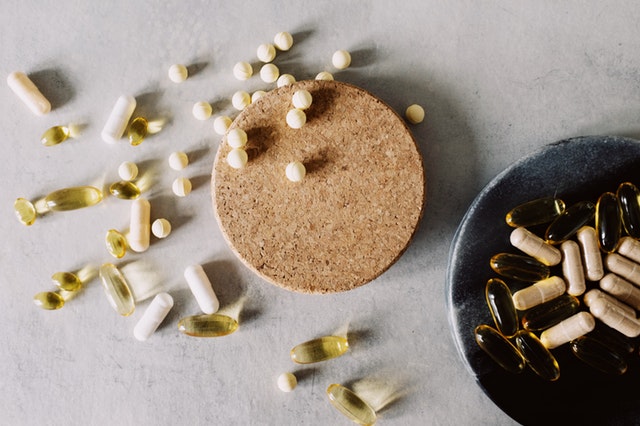In the modern world, it’s important to be knowledgeable about health and wellness. This means doing your own research and not believing everything you read and hear. The truth is, there are false claims, hate posts, and all sorts of exaggerated information flying around the globe via the internet.
We must be vigilant to understand what will keep us safe and healthy and what will harm us. This is a touchy subject that needs more attention than it’s getting, but I will try to shed a little light. Here are some crucial things to watch out for when searching the web for health advice.
False Information Can Be Dangerous
I can’t tell you how many times I’ve surfed the web for specific information about a health topic and been gravely disappointed. I’ve come across horrible websites that make unsubstantiated medical claims in their posts as well as using misguided statistics and inappropriate content. Anyone talking about health and wellness needs to be extremely careful about how and what they say online. There are desperate people out there who will believe anything.
I do believe it’s fine to bring information to the table, such as personal testimonies and experiences that might help someone to discover a new health product or wellness technique. However, saying anything to do with someone’s health can be a slippery slope. Be extremely careful what you read, believe, and what you post for others to see.
Self-diagnosing and Physician Avoidance
Here’s a good example: a 55-year-old woman is embarrassed about a rash she’s having on her bottom and vaginal area. Instead of asking her doctor, she searches the web for an adult diaper rash treatment because she has been using incontinence products for about a month. She finds some information and a couple of product recommendations. Still, no visit to the doctor.
Not only has she avoided disclosing her incontinence to her physician but the rash as well. Can you see how the information on the web can encourage self-diagnosis and physician avoidance? This woman could have a serious underlying issue that is not being treated because she believes she can handle it on her own.
Opinions Are Rampant
The internet has broadened the average Joe and Jane’s ability to spread opinions far and wide. And, though, I believe in freedom of speech and being heard, there are some people who post their opinions as if they were solid facts. Furthermore, there are people who believe in them.
The problem with this is that we are vulnerable to being misinformed and climbing on to proverbial bandwagons that could get us into big trouble with our health. What about all the moms who don’t want to vaccinate their children because they believe it’s harmful? Maybe they have some valid information that is backed by scientific evidence, and maybe they don’t.
On the flip side, there are those who are taking action against anti-vaxxers in their belief that they are right. So, who do you believe? We have to make these decisions for ourselves, and, hopefully, doing it with solid information and advice from our healthcare professionals. The web can bring us valuable info, but it can also taint our views.
Old Wives Tales and Myths are Alive and Well
How many times has your grandmother or mom told you not to get cold or wet outside? Her warnings about “catching pneumonia may still be ringing in your ears. We tend to believe these things because they have come from people we trust to look out for us. And, though, our close family and friends just want what’s best for us, they can also be terribly wrong.
Just as in the case of our ancestors’ beliefs, the web is littered with myths and ancient claims that have found their way into the minds of modern humans. I think we’ve filtered out some of the ridiculous, crusty ones, but we’ve got a long way to go to sort out the truth from fiction. Again, doing research and getting solid healthcare advice serves in this case.
Everyone is Different and Needs Varying Healthcare
It’s not uncommon to read health blogs and even primary health websites giving advice about supplements, medicines, and health therapies. Hell, I have posted some recommendations myself. I am, however, extremely careful about advising my readers to seek professional advice before they do anything.
The problem with searching the web for health advice is that it can present the proverbial “apple” when what you need is an “orange”. An article might tell you to take 25g per day of a supplement and, perhaps, you don’t need that much or you need more.
We are all different in weight, age, and health needs. Additionally, many people take medications and other supplements that can interact with some substances. So, a simple article about an herbal remedy can become a dangerous thing to the wrong person.
If you need to search the web for health advice or to further your knowledge about a particular topic, be careful and use wisdom. Here are a few tips to help you stay safe:
- Check facts against reputable databases and sources, including books, doctors’ advice, scholarly articles, and lectures.
- Check consumer and doctor reviews and unbiased articles about health products in which you are interested.
- Always ask your doctor about new symptoms you experience before you search online.
- Always ask your doctor before you start taking new supplements or do outside health therapies.
- Don’t spread rumors, myths, and exaggerated information about any health claims, products, or therapies. Stick to the facts and your accurate personal accounts.
**** This post is strictly informational and is not meant to replace the advice of your healthcare provider. Women’s lifelink, it’s owners, administrators, contributors, affiliates, vendors, authors and editors do not claim that this information will diagnose, treat, or improve any condition or disease.
 Women's Life Link Be Well, Be Happy, Be YOU!
Women's Life Link Be Well, Be Happy, Be YOU!






